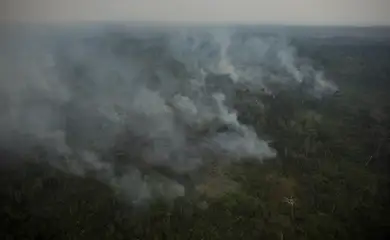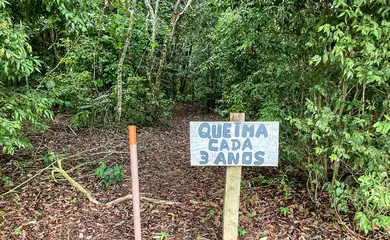Government to focus anti‑fire efforts in 21 Amazon municipalities

Brazil’s federal government, in collaboration with the governments of Amazon states, will set up action fronts in three regions currently facing most of the fires in the biome. The move was announced by the Ministry of the Environment and Climate Change after a meeting at the Planalto presidential palace, in Brasília, attended by governors and representatives from nine Amazon states as well as Mato Grosso do Sul.

“We have 21 municipalities concentrating half of all fire hotspots in the Amazon. And we’re separating them into three regions where we want to set up fronts with multiple agencies at federal and state levels, and we’re also going to call in municipal bodies, so we can take action on these new outbreaks,” said André Lima, the ministry’s extraordinary secretary for Deforestation Control and Territorial Environmental Planning.
Approximately 360 fire fronts are said to be operational in North Brazil, with more than 1,400 firefighters. Since January, over 59 thousand hotspots have been recorded in the Amazon—the highest since 2010. As a result, the smoke from the fires has reached cities across ten states, where skies have turned gray and air quality has deteriorated.
Images taken by the Center for Weather Forecasting and Climate Studies show the concentration of carbon monoxide over a strip stretching from the North of Brazil to the South and Southeast, passing over Peru, Bolivia, and Paraguay.
Illegal fires
After the meeting with the governors, Brazil’s Environment and Climate Change Minister Marina Silva said that 60 percent of the fires are being fought in areas under the responsibility of the federal government—such as conservation units, indigenous lands, and settlements—adding, however, that the aid extends to areas under state responsibility, bringing the federal involvement to 74 percent in combating the blazes.
“In other words, the federal government is making an effort beyond its mandatory responsibilities,” she pointed out.
One of the novelties, the minister pointed out, is that the police will punish the practice of illegal fires in the region. “With this effort, we hope that these fronts that are now being organized will help us increase our capacity to discourage the practice, because there will be an investigation by the Federal Police,” she said.
As there have been no new permits for fire management in the Amazon, all new outbreaks in the biome are illegal. “There have been no new fire permits. Most states have banned it, and those that haven’t are demanding that they do so. New fires are illegal, some are criminal, and others are irregular,” said André Lima, secretary at the ministry.




